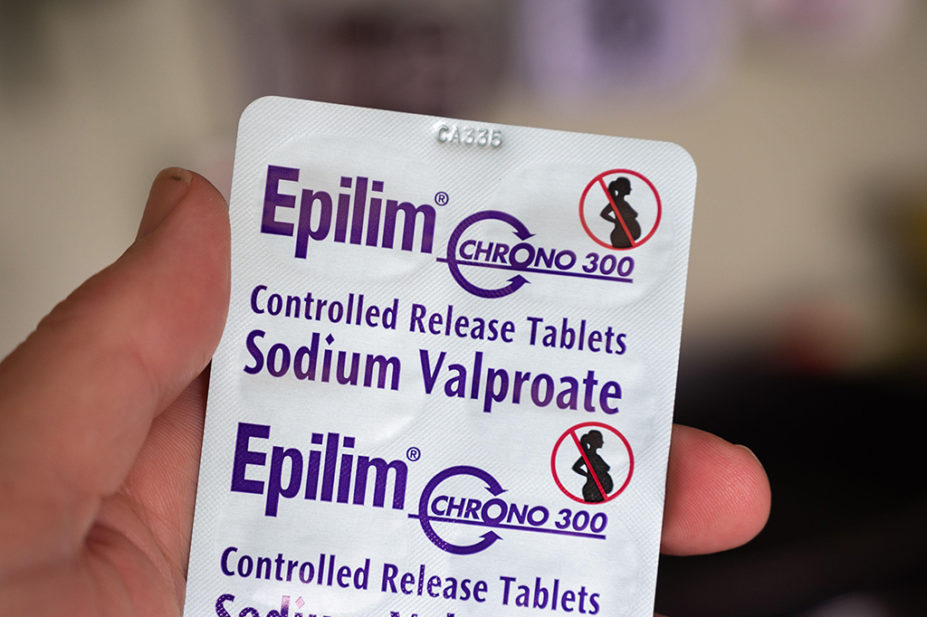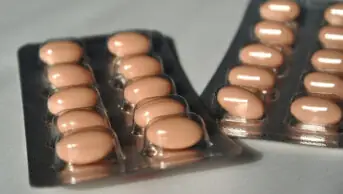
roger askew / Alamy Stock Photo
There will be “greater scrutiny” of the way sodium valproate is prescribed, following a safety review carried out by the Commission on Human Medicines (CHM).
Under new safety measures that will be introduced “over the coming months”, the CHM has advised that no patient, male or female, under the age of 55 years should be initiated on sodium valproate unless two specialists have independently considered and documented that there is no other effective or tolerated treatment.
For patients aged under 55 years who are currently receiving valproate, two specialists should independently consider and document that there is no other effective or tolerated treatment, or the risks of the medication do not apply.
A statement, published by the Medicines and Healthcare products Regulatory Agency (MHRA) on 12 December 2022, said that the CHM advised that these measures should apply to people aged under 55 years because this is the age group most likely to be affected by the risks of valproate to unborn children when taken during pregnancy, as well as the possible risk of impaired fertility in males, which could be reversible upon discontinuation.
Other new measures recommended by CHM include further warnings in the product information, improved educational materials, and better monitoring of healthcare professionals’ compliance with the new measures.
Responding to the measures, Henrietta Hughes, patient safety commissioner for England, said: “Patients need to know the risks of sodium valproate in pregnancy and I welcome the new measures from MHRA to improve its safe use in women and men. But we need to ensure they are implemented fully and that patients and healthcare professionals receive timely and accurate information and support.”
Alison Fuller, director of health improvement and influencing at charity Epilepsy Action, said that while the organisation welcomed the new measures, more detail was “urgently” needed on how they will work in practice.
“At a time when the NHS is under more pressure than ever, we are concerned about the challenges people with epilepsy will face in getting opinions from two different clinicians, particularly if valproate is the only effective drug in managing their seizures,” she said.
“The proposed new measures will also mean men with epilepsy under the age of 55 [years] are required to undergo a full review prior to the prescribing of valproate. However, we are still waiting to understand the full body of evidence behind these restrictions and its potential impact.”
Fuller said she was “concerned” that the new guidelines had come without adequate consultation from people with epilepsy and how they will impact on people’s treatment.
“It is, however, vital that anyone taking valproate must continue to do so until they have had a conversation about their medication with their healthcare professional,” she added.
The new safety measures were announced on the same day as an updated report was published on government implementation of recommendations laid out in the Independent Medicines and Medical Devices Safety Review, which was originally published in July 2020. In the report, the government said it had made “good progress on all fronts”, including the appointment of England’s first patient safety commissioner.
However, it said that it had come to the conclusion that a network of new specialist centres was “not the most effective way forward” to help those adversely affected by medicines taken during pregnancy.
“NHS England has instead taken forward work to improve care pathways for children and families adversely affected by medicines in pregnancy,” the report said.
Responding to the report, Hughes said that, while it showed that lots of work had been done, she was “disappointed that once again, the voices of harmed patients are not included”.
“I am determined to change this so that the views of patients and the public are central to the design and delivery of healthcare,” she said.
“This is how we will improve safety and reduce avoidable harm.”
The CHM has established an implementation group with a cross-health sector membership to support the safe introduction of the new valproate measures into clinical practice. This will be via a phased programme currently under development, according to patient safety priorities, and developed in collaboration with the healthcare bodies across the UK, to ensure ongoing patient care is not disrupted.
While the new measures are being implemented, GPs and pharmacists have been told to continue to provide repeat prescriptions for valproate, ensuring that patients receive the patient card, a copy of the patient information leaflet and packaging bearing pregnancy warnings.


